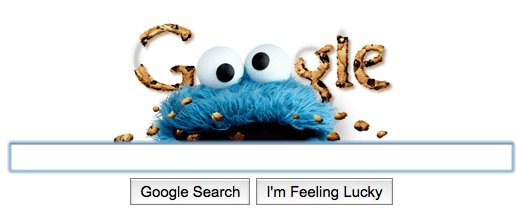An anonymous tip has shaken the online world. Google is producing an anonymous identifier for advertising, or AdID, an alternative for third-party cookies, which contributes to advertisers tracking of people’s Internet browsing activity for marketing purposes. This new project, which was discovered through an anonymous, reliable Google source, is intended to make browsing more secure, controllable, and compatible across multiple platforms.
Cookie Monsters

Everyone has come across the term “cookie” at least once but may have not been sure of its meaning and function. The most common place to see it is when you’re resetting your browser’s data; there are usually checklists for clearing history, emptying cache, and deleting cookies.
A cookie is a snippet of data taken from your browser, and stored on your computer’s hard drive. This action is useful when a visitor wants a website to remember their login information or for browsers to categorize your interests and display those types of advertisements on different sites you visit. To keep the confusion steaming, there are different types of cookies with slightly different purposes. For the sake of relevance to Google’s new project, we’ll cover two flavors:
First-Party Cookies
A first-party cookie corresponds to the host domain and is tracked by the website a person is visiting. According to Google Analytics, the role of a first-party cookie is to:
- Determine which domain to measure
- Distinguish unique users
- Remember the number and time of previous visits
- Remember traffic source information
- Determine the start and end of a session
- Remember the value of visitor-level custom variables
Third-Party Cookies
A third-party cookie is a cookie that corresponds to the domains aside from the host domain. Websites can contain and display content from third-party domains or third-party advertisements, which works similarly to first-party cookies in the case of tracking browsing history. Third-party cookies refer to the third-party advertisements and domains featured on the site a person is visiting. This method is used by websites, many who provide free content to surfers and rely heavily on advertising. Since some of these companies are unable to maintain advertisements in-house, they seek assistance from these third-party advertisers.
The New Recipe
Although Google has not publicly proposed this idea and little is known about the concept, the cyber world has began to anticipate the development and creation that is sure to come from this online ad giant. Google’s proposed anonymous identifier for advertising (AdID) will hand some control back to web surfers by allowing them to limit ad tracking. Users may have the option to create lists of approved advertisers as well as prohibit others.

Google is essentially striving to develop a browsing system that will function across multiple platforms, increase browser security, and bring ease to surfers with administrative ad features. This alternative can benefit third-party advertisers who have had trouble tracking and displaying their ads on mobile browsers however, more information from Google announcers will further enlighten and educate the public about how exactly they’re going to create this wonder-tracking system. Google has yet to make a public statement in regards to the AdID tip but has comforted fans with their determination to continue fighting for surfing security,
“We believe that technological enhancements can improve users’ security while ensuring the Web remains economically viable,” the statement said. “We and others have a number of concepts in this area, but they’re all at very early stages.”
So, what do you think about the new cookie-replacing technology? Let us know below!

